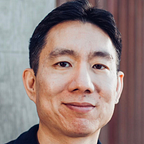Do what you love (but know what love is)
Most people I know look at work from one of two different vantage points.
On one side is a group that sees work as nothing more than a necessity. Work is that thing they reluctantly endure to enable the other things they’d prefer to do. The internal countdown to Friday starts when they step past the office doors on Monday morning. On a good day, the thoughts of work vanish on the train ride home. This is the malaise that we commonly associate with most of corporate America.
On the other side is a group whose work defines much of who they are. It is integral to their happiness. They like to talk about work even after the work’s been done. They can’t help but think about their work while trying to fall asleep — about the unfinished problem or the next big endeavor. When asked if they love what they do, most of these people will, perhaps after some deliberation, say “Yes.”
I can confidently say that I have been a member of the second group for quite a while now. I’ve loved working on DoneDone for the past (nearly) six years. I wholeheartedly believe that you should — as many-a-life coach will tell you — do what you love.
But, some argue this advice misleads people. It suggests that if you are simply passionate about something, the money will follow. Or, if you love to do something so much, doing it as work will feel like you’re not working at all. (I — too — don’t believe either of these are true). So, is this mantra just another bit of trite new-age philosophy? Yet another way of making a quick buck on a new book or weekend seminar? How do some people figure out the work they love to do, while others are always seemingly on the lookout?
Love is not a stronger form of like.
The most obvious misconception some people have of this mantra is that love is just a stronger form of like. But, they are — in fact — two very different feelings. For instance, I like cooking every now and then. It’s a hobby I’ve picked up more often since working remotely. But I don’t love it. I like cooking in doses. If I were to cook every day for hundreds of strangers in the pressure and sweat of a restaurant kitchen, I’d begin to hate my once-hobby-turned-profession. If it ever became anything more than a hobby, I wouldn’t have a reason to want to do it anymore.
On the other hand, if you love your work, you will almost universally accept the challenges you don’t inherently enjoy because you see it as a necessary means to the next step in your career, your product, or your service. Doing what you love does not mean you like what you’re doing all of the time.
Doing what you love does not erase stress, dread, or fear.
In fact, a job you love is often stressful. Even more stressful than a job you don’t really care about.
On a snowy morning last February, I woke up to nearly 100 emails from people who couldn’t log into DoneDone. It turns out we had an issue with our caching servers and didn’t have the right fallbacks or alert systems in place. The alerts were telling us everything was OK, when it actually wasn’t. (We’ve since fixed the alerting as well as the fallbacks.) We finally resolved the issue later that morning and collectively got back to all those people who were left waiting at the front door.
But that day was stressful. Really stressful. I cringe looking back on it. Yet, despite dreading the situation itself, at no point did I feel like I didn’t want to be working on the problem. If you’re a fellow developer, listen to the story Sam Saffron shares about the day StackOverflow’s database went down overnight, particularly about how he endured the stress for the work he loves.
Loving your work means you care deeply about its success. And, caring deeply about anything means you will face the inevitable pressures, difficulties, and obstacles of making it a success. The difference between work you love and work you don’t isn’t the stress, but how you face it.
If you loved to do something, ask yourself why.
Jeff Haden believes that “doing what you love” is a backwards philosophy.
“According to research, what is the strongest predictor of a person seeing her work as a calling? The number of years spent on the job. The more experience you have the more likely you are to love your work.”
In other words, you might not know you love what you do until after you’ve done it for a good long while.
To a large extent, I agree. If you asked me in 2008 whether I would love working on bug tracking software, I would probably have guessed not. In the grand landscape of software, bug tracking doesn’t exactly have instant “cool” appeal. But, what I did know in 2008, from having already written code for other companies for nearly a decade, is this:
I love the idea of providing efficiency. I love the thought of providing a touch of joy (however small) to thousands of people I personally do not know. I love the idea of creating something from nothing. I love writing my thoughts down. I love the idea of a self-funded, lean, and profitable company. I love sharing whatever knowledge I have with others. I love making something faster, prettier, cleaner, easier.
Learning these things about myself already, DoneDone simply provided the platform to make all the things I already knew I loved, actually happen.
